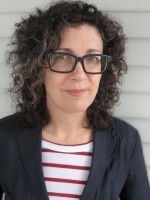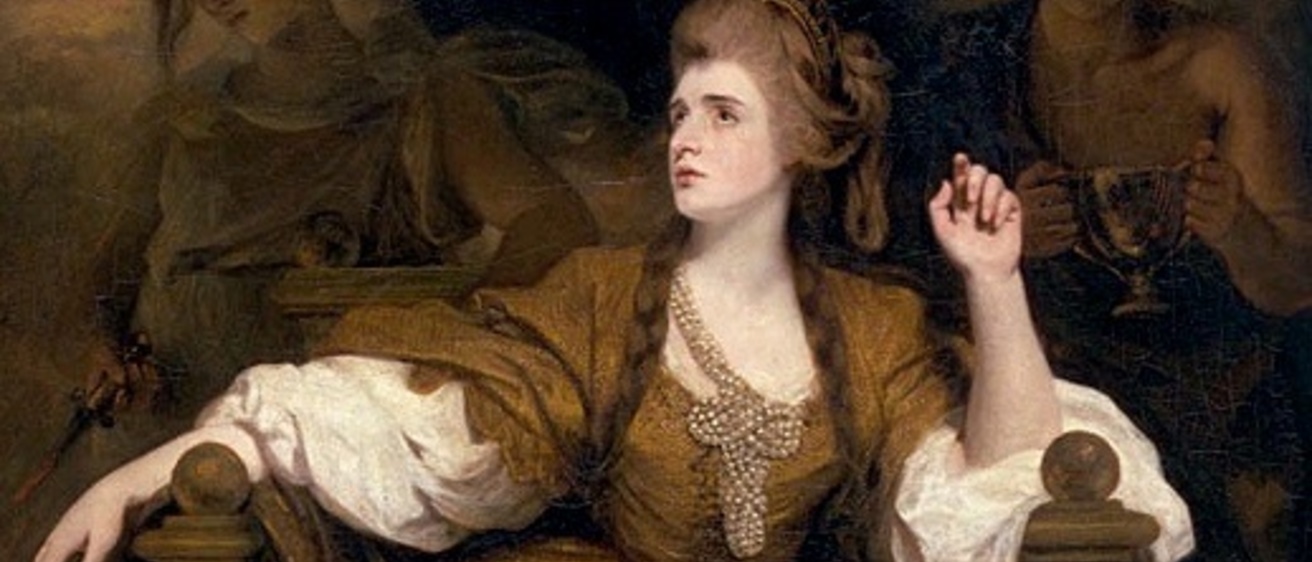In 2003 when Judith Pascoe (English, CLAS) joined an Obermann Cmiel Research Semester, “Sounding the Voice,” she had a topic in mind but did not anticipate that it would become the center of her work for the next few years. Several years later, The Sarah Siddons Audio Files won the prestigious Barnard Hewitt Book Award from the American Society for Theatre Research. The award was a major stamp of approval from a significant academic theatre group honoring Pascoe’s imaginative approach, which combines personal nonfiction with an interdisciplinary topic.
The Queen of Drury Lane
Siddons, an 18th-century Welsh actress who was the best-known tragedienne of her day, captured Pascoe’s attention when she encountered her briefly while researching an earlier book. “People were obsessed with her,” says Pascoe. “They would faint and swoon at her performances, and go see her perform Lady Macbeth [her signature role] multiple times.”

The book, an account of Pascoe’s search to find what was lost, became a meditation on absence and presence. Trying to understand what was so captivating about Siddons, Pascoe believed that it must have been the quality of her voice – something we will never be able to experience because Siddons lived before sound recording was possible. “The Romantics were the last generation that went unrecorded,” she writes, “and so inspired a particular fascination with their voices.” As Pascoe’s book reveals, adoring fans tried to capture the actress’s voice through portraits, memorization, and serial attendance of her performances.
"Memoir of a deranged project."
While the book is a study of Siddons, it also explores the possibility of expanding the format of the critical monograph. John Peters, professor of Communication Studies and director of the Obermann sound semester, admires The Sarah Siddons Audio Files precisely because it is “a memoir of a deranged project” – deranged because the project to truly hear Siddons was ultimately impossible.
In the book, Pascoe details her search, which included voice lessons she took with undergraduate acting students. The idea for such applied study came from one of her Obermann seminar colleagues, Katherine Eberle Fink (Music, CLAS), who led Pascoe to take an interest in vocal training. Others members of the “Sounding the Voice” semester also informed her work via their own projects. Peters organized the semester out of a sense that “the voice is a topic uniquely able to sustain interesting and important interdisciplinary conversations.” He was joined by Corey Creekmur (English and Cinema & Comparative Literature, CLAS) who examined the imitation of African American voices by white performers; Kembrew McLeod (Communication Studies, CLAS), who focused on how once captured, the voice becomes a commodity; and Eberle Fink (Music, CLAS), a mezzo soprano who was developing a ranking scale used by voice teachers.
“I have never learned so much in one semester,” Pascoe recalls. “By the end of it, I knew I had a book.” A prestigious American Council of Learned Societies Fellowship in 2006 allowed her to focus on the Siddons project. She also designed a graduate seminar based almost entirely on materials gathered that semester.
Japanese adaptations of Wuthering Heights
More recently, Pascoe was awarded a Fulbright Lectureship in Japan. She intended to write about Wuthering Heights, but the scope of the project morphed as she learned about the multiple ways that the Emily Brontë novel has been absorbed and re-appropriated by the Japanese through theatre productions, homoerotic manga novels, and more.
Last fall, Pascoe received one of the highest national honors for humanities scholars, the Guggenheim Fellowship, She is currently working on a collection of essays that consider questions arising from these Japanese adaptations: How do literary works cross over from one culture into another? What gets added (rather than lost) in translation? How can the process of foreign language acquisition (even when it is belated and imperfect) enhance critical acuity?
Obermann director Teresa Mangum, who is also one of Pascoe’s colleagues in the English Department, comments: “Professor Pascoe’s work is absolutely inspiring. She constantly surprises readers with brilliantly unexpected questions and discoveries; she meets the most rigorous expectations of fellow scholars even as daring leaps of imagination carry her into unexplored territory; and her own voice warmly welcomes readers to join her sentence by captivating sentence.”
